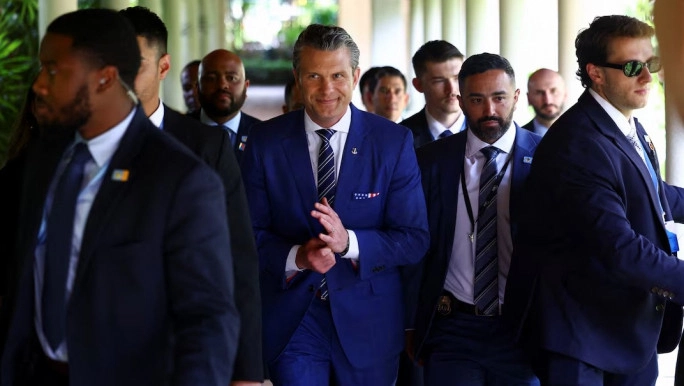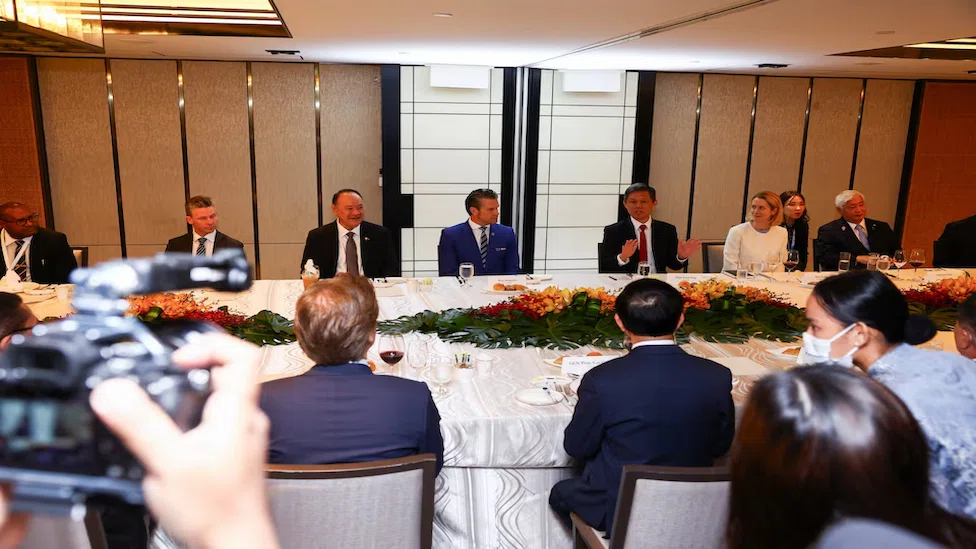US-Europe Asia Tensions Rise at Shangri-La Dialogue: The US-Europe Asia tensions flared up at the Shangri-La Dialogue in Singapore. US Defense Secretary Pete Hegseth urged Europe to focus on its security, not Asia. Meanwhile, China sent low-level delegates, avoiding confrontation.
High-ranking Indian and Pakistani military officials also attended, showcasing ongoing hostility. The event revealed deepening divides over global security priorities. Europe, however, resisted US pressure, insisting on maintaining its Asian presence.
Also Read | Ukraine-Russia Peace Talks Resume in Istanbul: Key Updates and Hopes for Ceasefire
US-Europe Asia Tensions Rise at Shangri-La Dialogue: Insights
- The US pushes Europe to prioritize its security over Asian engagements.
- China skipped high-level talks and sent only scholars instead.
- India-Pakistan tensions were visible despite a recent ceasefire.
- Europe rejects the US stance, emphasizing global security links.
- France and Britain reinforce Indo-Pacific ties, defying US expectations.
Background
The Shangri-La Dialogue is a key security summit. It usually highlights the US-China rivalry. This year, US-Europe Asia tensions took center stage. The US wants Europe to boost its defenses first. Europe, however, sees Asia as vital for trade and security.
Meanwhile, India and Pakistan’s strained relations added to the tensions. Their military leaders avoided direct interaction at the event.
Main Event
US Defense Secretary Pete Hegseth spoke on Saturday. He called China an “imminent” threat but urged Europe to focus locally. “We prefer European investments to stay in Europe,” he said. His remarks highlighted US-Europe Asia tensions over military priorities.
China’s absence was notable. Instead of their defense minister, Beijing sent minor officials. This signaled a retreat from confrontation.
India and Pakistan’s presence added drama. Their delegations avoided each other entirely. This followed recent clashes halted by a May 10 ceasefire.
European leaders pushed back against the US. Kaja Kallas, Europe’s top diplomat, stressed that Asian and European security are linked. “If you worry about China, worry about Russia too,” she said.
France’s Macron emphasized independence. “We are neither China nor the US,” he declared. He proposed a “third path” for Europe-Asia cooperation.
Britain and France reinforced their Asian ties. A British aircraft carrier will visit Singapore soon. France maintains troops in the Pacific, showing long-term commitments.

U.S. Defense Secretary Pete Hegseth attended a trilateral meeting with Japanese and Australian officials during the 2025 Shangri-La Dialogue in Singapore on May 31, 2025.
Photo Credits: REUTERS.
Implications
The US-Europe Asia tensions could reshape global alliances. Europe’s refusal to withdraw from Asia may strain US relations. Meanwhile, China’s low-profile approach suggests strategic caution. For India and Pakistan, the summit highlighted unresolved hostilities. Businesses and governments must navigate these shifting dynamics carefully.
Conclusion
The Shangri-La Dialogue revealed growing divides. US-Europe Asia tensions are now a major global security issue. Europe insists on balancing both regions. China remains cautious. India-Pakistan tensions persist. Future summits may see even sharper clashes over these rivalries.



